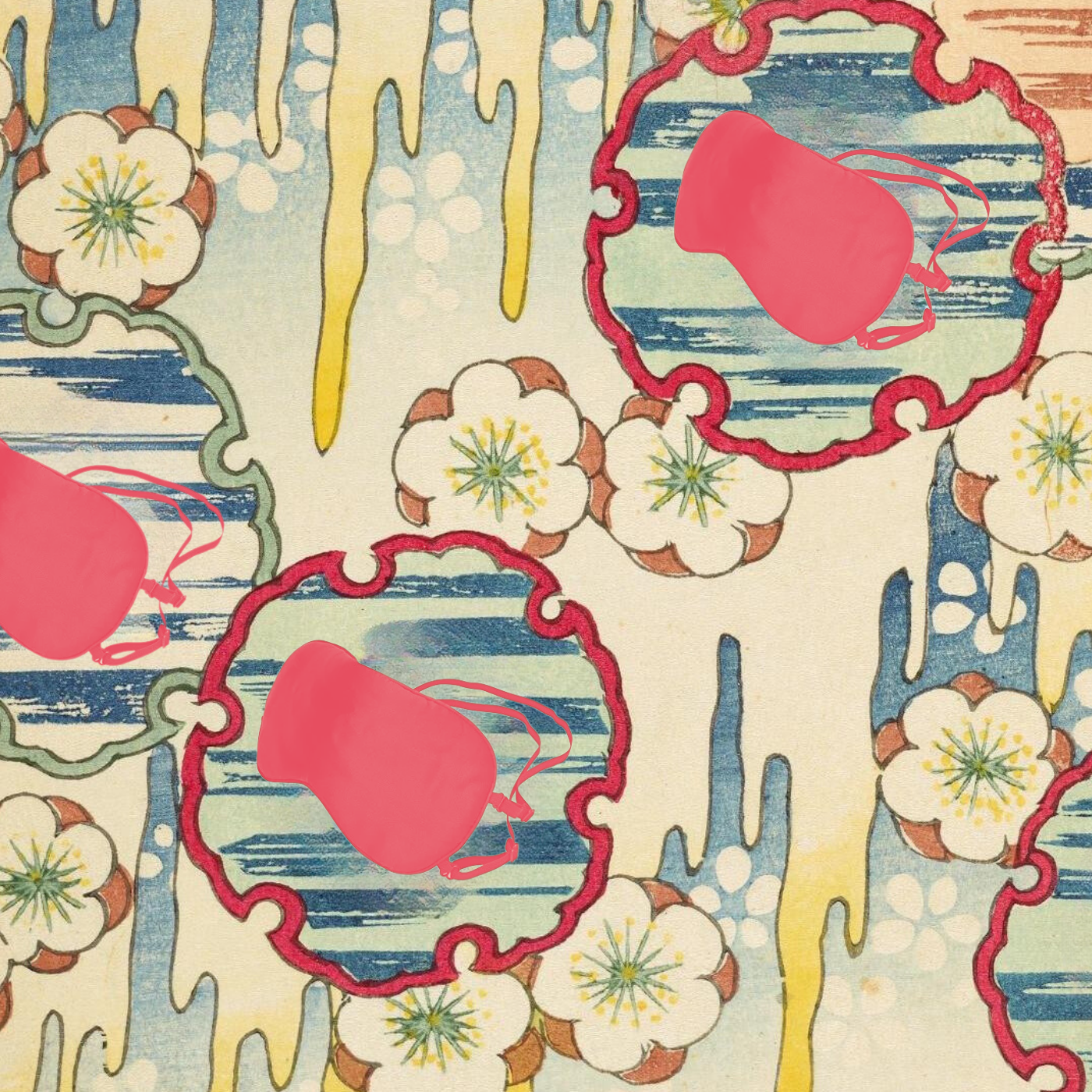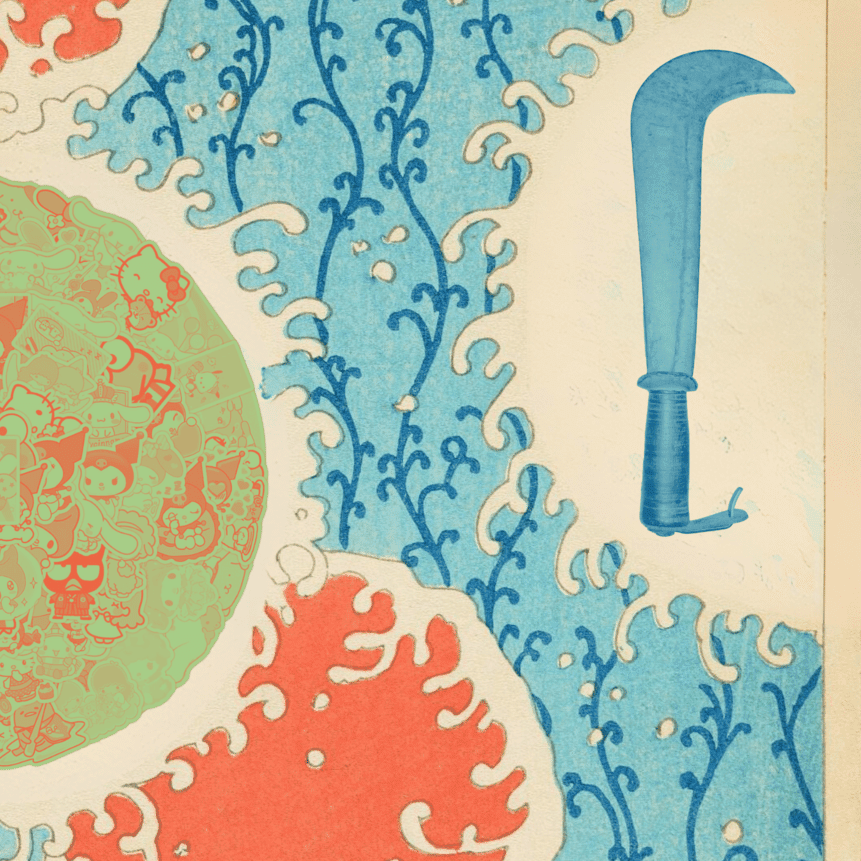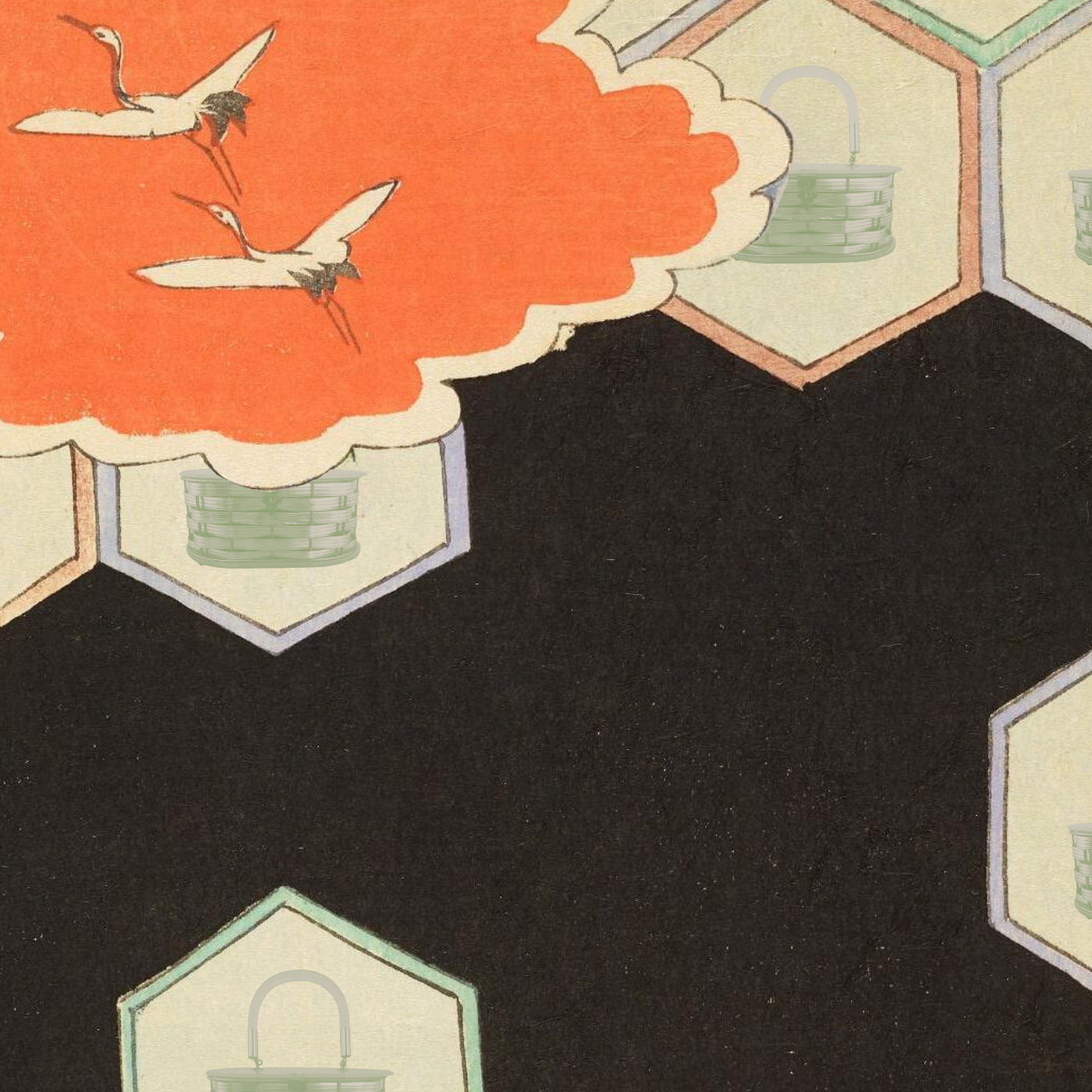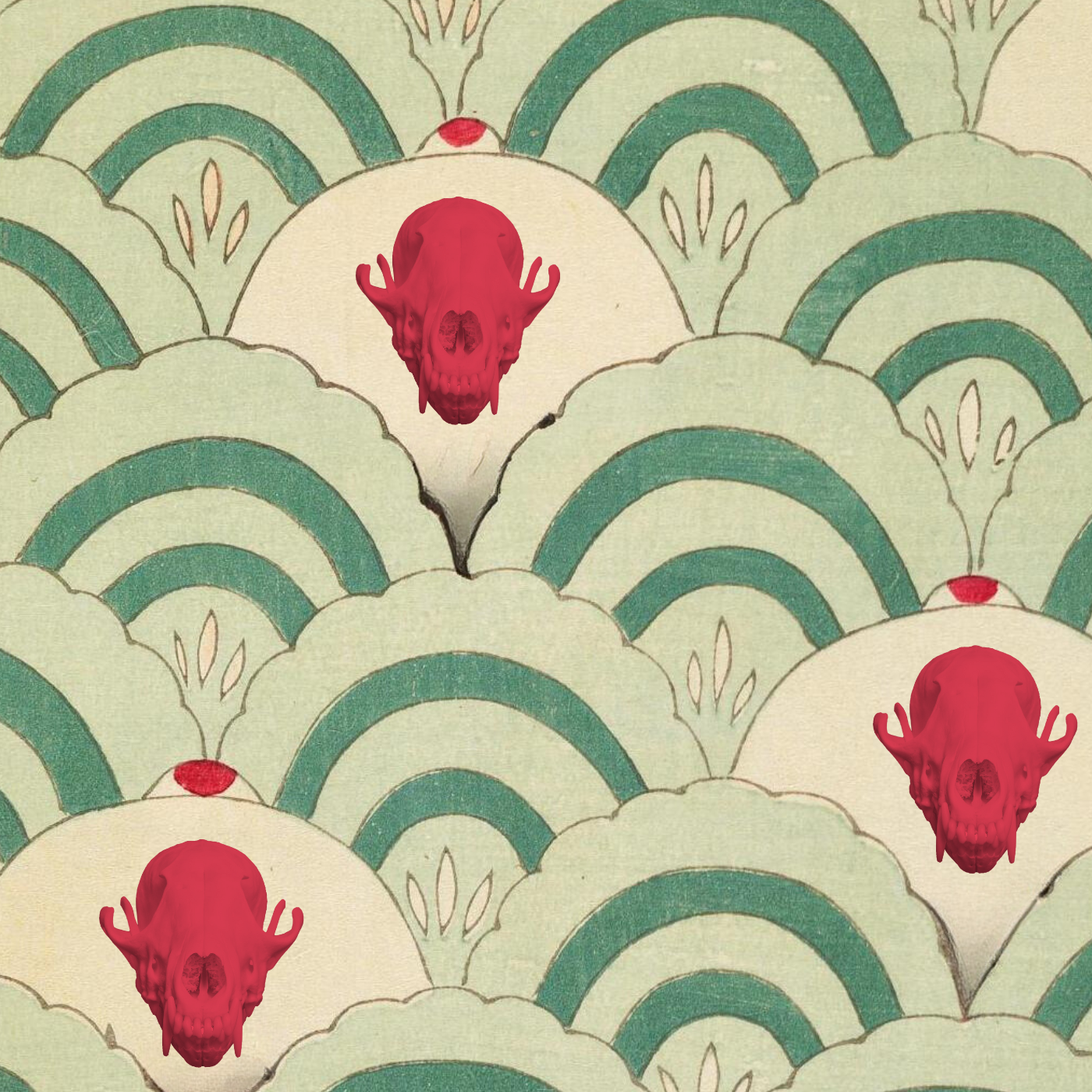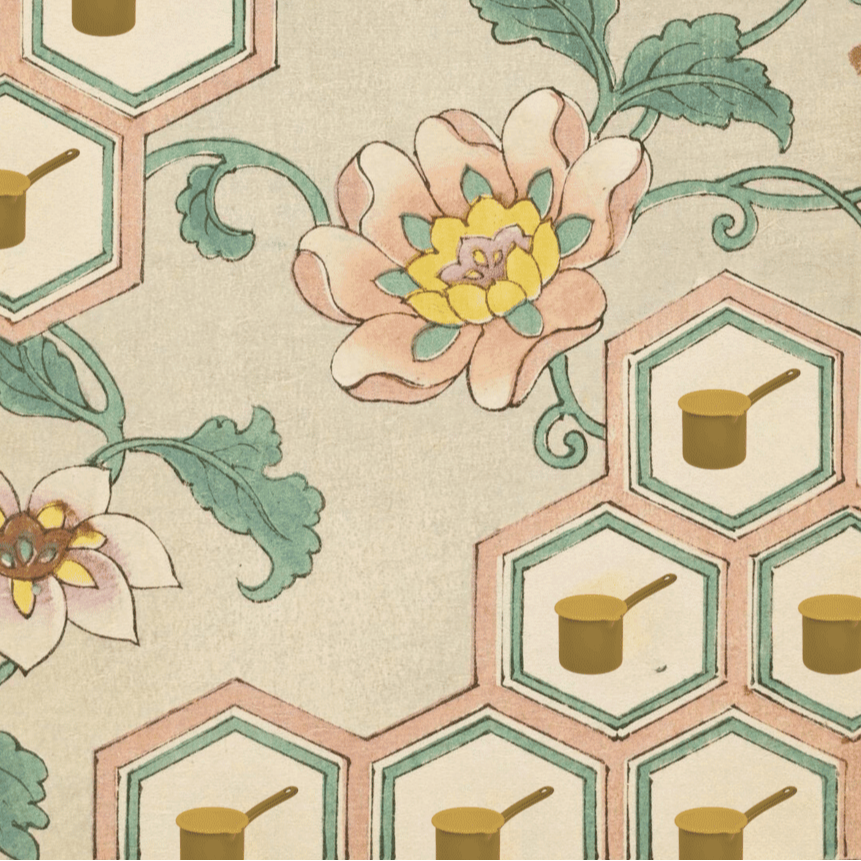- Magazine Dirt
- Posts
- Freddie's glove
Freddie's glove
The banality of destiny.

Artwork by Greta Rainbow
Isle McElroy on Freddie Sykes’s gardening glove.
This is the third in a series of dispatches called Peak Objects, from Dirt x MUBI. Authors writing about a single object of their choice from the world of Twin Peaks. Prior dispatches were by Terry Nguyen and Geoff Rickly.
Near the end of the second episode of Twin Peaks: The Return, a young British man, Freddie Sykes, joins original Twin Peaks mainstay James Hurley for a drink at The Road House. The men stand side-by-side, looking out into the crowd. Freddie clutches a beer to his chest. On his free hand is a dark green gardening glove. The scene rushes away to the stage; The Chromatics perform through the credits.
It requires a bit of an effort to notice the glove—I missed it the first two times I watched this episode. Freddie keeps his hand at his side; no one mentions the glove. It has the makings of a throwaway detail, the kind of specific but frivolous accessory that Lynch is so good at adding into his worlds.
When the glove reappears, twelve episodes later, Freddie and James are sitting at the edge of a loading dock behind the Great Northern hotel, where the two men work as security guards. Freddie pinches a walnut between his gloved forefinger and thumb, gently squeezes. The walnut bursts into dust. He tries again. Same result. Freddie sighs, exasperated, as he wipes the dust off his pants. James opens the next one using a nutcracker and passes the nut into Freddie’s ungloved hand. The scene is unexpectedly tender, Freddie’s frustration especially moving. All this man wants is a walnut!
James asks the question on everyone’s mind––what’s up with the glove?
James asks the question on everyone’s mind—what’s up with the glove? The quick version: One drunken night, Freddie was sucked into the sky, where he came face to face with the Fireman and was instructed to purchase a single green gardening glove from his local hardware store. The glove will give him the power of an enormous pile driver. Once he obtains it, he must go to Twin Peaks, where he will find his destiny.
The brilliance of this scene lies not in the story’s absurd metaphysical details. If you’ve hit episode 14 of The Return, you’ve seen far weirder things than drunk Londoners getting sucked into space by the Fireman. Rather, what makes this scene stand out—what makes it so remarkably Lynchian—are the mundane frustrations in Freddie’s story.
Newsletter continues below

SPONSORED BY MUBI
To celebrate the 35th anniversary of Mark Frost and David Lynch’s groundbreaking TWIN PEAKS, the complete original series plus its 2017 follow-up THE RETURN are now available for the first time on MUBI. Dirt readers get two months free to enjoy this show, plus everything else streaming on the platform for incredible cinema. Start watching here.
Lying just five miles south of the Canadian border, and twelve miles west of the state line, is a sleepy little town filled with intriguing characters, a damn fine cup of coffee, and cherry pie so sweet it’ll kill you. While you’re visiting, you may ask yourself, “Who killed Laura Palmer? Is it all a dream? Or are the owls really not what they seem…” Welcome to the town of Twin Peaks.

He finds the single glove at the hardware store, in an open package, exactly as the Fireman predicted—but the cashier won’t sell him the glove. What stands between Freddie and destiny is a salty cashier. What stands between Freddie and an unsalted walnut is destiny. The mundane and the transcendent are locked in standoffs, not as opposite forces but as coterminous forces, each one giving rise to each other.
“Why you?” James asks Freddie, when he ends his story. Freddie asked the same thing to the Fireman. “Why not you?” the Fireman replied.
Watching this scene now, it offers an unintentional counterpoint to the ongoing John Wickification of Hollywood action films. In those movies, the everyman intent on living his life in peace is actually a secret assassin, attempting to put hundreds of murders behind him. Freddie is no assassin. He suffers not from a violent past but from a meaningless past congested with benders. He’s right to question what makes him worthy of the destiny foretold by the Fireman.
He suffers not from a violent past but from a meaningless past congested with benders.
After all, Freddie is a quintessential Lynchian everyman. He wants to do good. He is not a hero, because he isn’t acting out of an egotistical, singular force. He is a participant more than a leader, a “team player,” to borrow from sports cliches, staying ready to clobber Bob when the occasion arises.
The occasion comes in the Twin Peaks police department. Bob, growling from inside a dense black orb, pinballs around Sheriff Truman’s office, and Freddie, begloved, is the only one capable of destroying the orb. This isn’t the first time we see Freddie using the glove. He attacks a man who goes after James, he uses it to knock out a corrupt cop. But this is the culmination of his destiny. And in the aftermath of this Manichean face-off, the story continues without him.
The glove is a symbol of Freddie’s humanity—that is, of what is most confounding and beautiful and silly about being alive. It’s silly that a garden glove is required to destroy the purest embodiment of evil. But for Lynch, silliness is not a sign of weakness or frivolity. The glove is a parallel object to Margaret Lanterman’s log. Both characters understand the importance of the objects they possess. Their objects are expressions of trust, which radiate outwardly as love. Through both the glove and the log, Freddie and Margaret—albeit through wildly different means—protect the people they care about. Why them? Because it could have been anyone, though it could not have been anyone else.

OBJECTION
|
|
|
|
|

